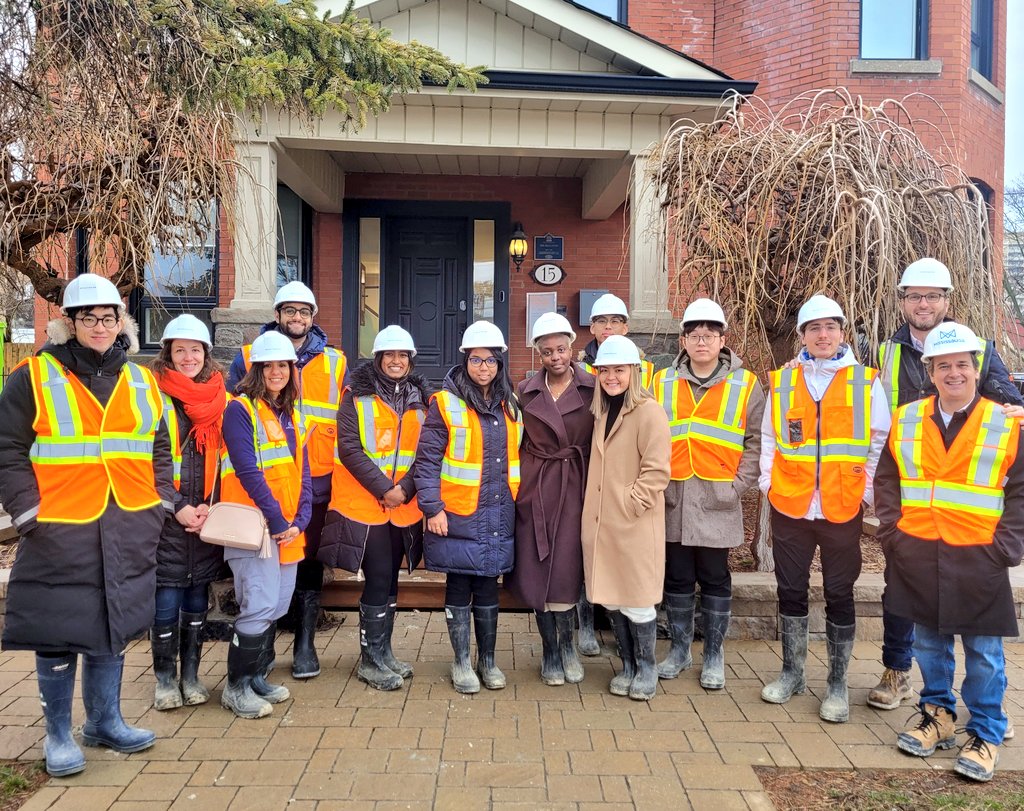GRQ is a member benefit magazine. Click here to learn more about Good Roads Membership.

By: Natasha Walli, Placement & Employer Relations Manager, University of Toronto, Master of Urban Innovation
Let’s face it: municipal government doesn’t always have a ‘sexy’ reputation. But as more municipal employees retire, the need to attract this young talent has municipalities facing a branding challenge. Local government jobs are often perceived as slow and stuffy, far from the Google-esque offices Gen Z might imagine, complete with nap pods and ping-pong tables. While government roles may lack the superficial perks, they offer stability, solid pensions, and the chance to shape communities for the better, values that resonate with Gen Z’s desire for purpose-driven, impactful work and work-life balance. Municipalities need to make extra effort to ditch the “paper-pusher” stereotype and do a better job storytelling the reality of working in local government: meaningful careers in community-building roles that are both secure and fulfilling.
How do we shift the image?
1. Make Impact Visible: Tell the Story Beyond the Job Title
Municipal work isn’t abstract, it changes lives every day. Help job seekers understand how their work contributes to safer roads, greener spaces, or more inclusive communities. Use visual storytelling to bring that impact to life: show the before-and-after of projects, feature stats on transit emissions saved, or share resident quotes.
Who’s doing it right? On its career landing page, the City of Toronto features a 2-minute recruitment video highlighting diverse employees who share how their work in housing, health, transportation and water distribution helps others and contributes to socially and environmentally sustainable communities. Each of them reflects on the ‘feel-good’ moments that bring intrinsic satisfaction to their roles.
2. Give your Careers Page a makeover
A city’s careers page is often the first impression for job seekers, don’t waste it on a wall of only job titles. Turn it into a storytelling tool that welcomes new talent, shows off culture, and opportunities for growth. Include testimonials, awards, videos, and features on internal programs or mentorship initiatives.
Who’s doing it right? The City of Mississauga’s Jobs page features leadership development programs, training, growth opportunities and partnerships with equity-deserving communities, framing municipal work as a place where people thrive and advance in their careers.
3. Create Entry Points
Start early. Create experiential opportunities for students that will allow them to see what public service is really about even before they graduate. This can be a long-term investment in creating a talent pipeline for your future workforce. Whether it’s creating valuable summer internships, capstone projects, field trips, or making time to connect with relevant academic programs through mentorship opportunities such as networking days, classroom panels, or guest lectures, these experiences matter. They help young people see the value and purpose in municipal work and just as importantly, they help them see themselves in it.
Who’s doing it right? The City of Markham hired 60 students this summer (2025) across departments, giving them hands-on work experience. Many will finish their internships with a while new perspective on what public service can be. These opportunities are a win-win: students get the opportunity to apply their skills to gain meaningful work experience, and municipalities can foster long-term talent development.
4. Speak Their Language: Get Strategic on Social Media
Websites and job boards alone won’t cut it- you need to show up where they scroll. Social media, though sometimes painfully fast-evolving, remains the most direct way to connect with younger audiences. Platforms including TikTok, Instagram, and YouTube offer a chance to be real, fun, and informative, sometimes all in under 60 seconds. Whether it’s a behind-the-scenes reel from city hall, an Instagram Q&A about job opportunities, or a ‘people of…’ campaign, social media can help government work feel relatable. Bonus: student are digital natives- hire an intern or two!
Who’s doing it right? The City of Brampton is leading the way. Their TikTok page strikes the perfect balance of fun and informative, with videos about recruitment fairs, city events, and the benefits of working within the City. It humanizes City Hall and showcases real staff and real opportunities, exactly the kind of ‘vibe’ that helps shift perceptions and spark interest.
The Bottom Line
Municipalities ALREADY offer purpose, stability and career growth. It’s time to showcase it. The good news is, you have support! Organizations such as Good Roads, AMCTO and AMO have created multiple programs to support young professionals learn more about working in municipal government including special forums at conferences, internship programs and fellowships. Finally, I might be bias, but don’t forget to use educational partners such as specific university and college programs to help along the way!